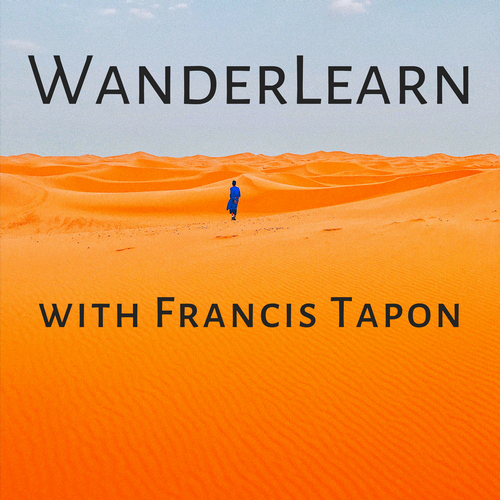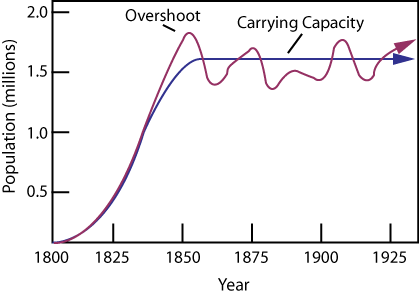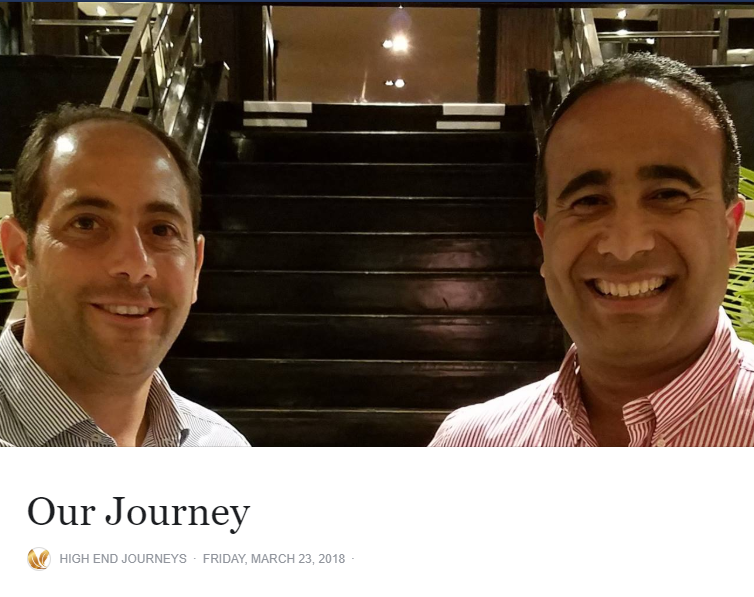WanderLearn Podcast

Check out the latest WanderLearn episodes!
Take a profound and distant journey. Call it:
- Deep Travel
- Immersive Travel
- Slow Travel
- Vagabonding
I will guide you to the intersection of travel, technology, and transformation.
The WanderLearn podcast will compel you to go beyond your comfort zone.
I wander all over the world and I share what I learn with you! In so doing, I hope you'll be inspired to do the same. Travel is the best university.
How to Subscribe to the WanderLearn Podcast
Search for "WanderLearn" in your favorite podcast player.
 If that fails:
If that fails:
This email address is being protected from spambots. You need JavaScript enabled to view it. the details of the podcast player that failed to find the show.- While I fix the problem, copy and paste this feed into your favorite podcast player:
https://wanderlearn.com/feed.xml
Although subscribing is essential, two other things help the WanderLearn podcast:
- Download every WanderLearn episode as I produce them! That's what helps get it noticed! It's better to have 100 subscribers and 100,000 downloads per episode than 10,000 subscribers and 100 downloads.
- Share the episodes! Word of mouth is gold!
Get My Infrequent Newsletter!
Don't just listen, watch!
Some WanderLearn episodes will also be videos, so be sure to subscribe to my YouTube Channel too.
I welcome comments and questions for each episode, which are listed below, from the most recent to the first one. I promise to answer any question from one of my Patrons. That's just one way to get rewarded for supporting the show!
Listen to the latest episodes below!
The show notes and comments for each episode are below

Algeria is Africa's biggest country.
It's also been the least touristy North African country for the last 100 years, on average. During Kadaffi's time, Libya received more tourists than Algeria. It's only since his fall that Algeria has become more popular than Libya.
In short, Algeria, despite its enormous size (about the size of Western Europe) is largely an enigma.
After getting rejected at three Algerian embassies, the one in Chad finally gave me a 3-month visa. It was one of the last countries I visited in Africa.
In this podcast, I placed a microphone in the middle of a roundtable discussion about Algeria.
I talk with Zakaria and Samir, two male Algerians.
To have a Pan-African perspective, also sitting at the table are two women: Rejoice (from Cameroon) and Karen (from South Africa).
Because the microphone was in the center of the table and most people have hard to understand accents, you might struggle to follow the discussion, but this is the nature of traveling and cross-cultural discussions.
WanderLearn fans get a special chance to win a tour for two to Italy, England, Vietnam or California for FREE by going here:
https://www.tourradar.com/wanderlearn
3 Sponsors
1. Tour Radar
Do you want to take a life-changing travel adventure but you either hate planning or you don't know where to start?
TourRadar is a trusted online marketplace that helps you find, compare and book multi-day tours that will expand your horizons through life-enriching travel experiences.
Just type in a region you have always wanted to visit or your preferred travel style and TourRadar will do the rest.
And right now, WanderLearn listeners can visit TourRadar for a chance to win a free trip for two to Italy, England, Vietnam or California. Enter now by going to http://tourradar.com/wanderlearn
2. The Steelman Foundation
Rene Steelman is my top WanderLearn patron. She leads the Steelman Family Foundation which helps families with non-ambulatory children to acquire wheelchair-accessible vehicles.
Their mission is to help families with children diagnosed with a permanent disability participate in the community. The Steelman Family Foundation also supports events to benefit cerebral palsy education and activities. They work exclusively with United Access and serve families nationally.
Learn more and donate at https://steelmanfamilyfoundation.org
3. Health Access Sumbawa
One of WanderLearn's top patrons, Kathy Kennedy Enger, asked me to draw attention to Health Access Sumbawa. I am happy to promote this remarkable nonprofit.
In 2014, Jack Kennedy founded the organization to bring malaria control and healthcare to remote, impoverished communities. It started on the remote island of Sumbawa, Indonesia. Since then, it's expanded thanks to generous donations. Visit their website to learn more and to donate: https://healthaccesssumbawa.org
More info
You can post comments, ask questions, and sign up for my newsletter at http://wanderlearn.com.
If you like this podcast, subscribe and share!
On social media, my username is always ftapon. Follow me on:
- http://facebook.com/ftapon
- http://twitter.com/ftapon
- http://youtube.com/user/ftapon
- http://pinterest.com/ftapon
- http://tumblr.com/ftapon
Claim your monthly reward by becoming a patron at http://Patreon.com/FTapon
Rewards start at just $2/month!
If you prefer to do a one-time contribution, you can send it to my PayPal at
If you prefer sending me cryptocurrency, then please send your support to one of my favorite wallets:
- Bitcoin: 3EiSBC2bv2bYtYEXAKTkgqZohjF27DGjnV
- Ethereum: 0x86D8Ab45260F82A5548F39BF21C9e244D0405a83

Over a decade ago, when I was yo-yoing the Continental Divide Trail, I had a lot of time to think. When I got to a town, I would have all this pent up writing energy that would explode on my blog.
One of my most profound articles was when I contemplated was what does it mean to be human?
In this WanderLearn episode, I read that old article because it's still relevant today (and it will probably always be relevant since it's about being a living thing).
Humans, like all life, is aiming to reach its carrying capacity. Environmentalists claim that we are "overpopulated," but if that were true, you would see a decline in the human population because we've hit our carrying capacity.
Another piece of evidence of overpopulation is that significant portions of the species are starving to death. One of the Horsemen of the Apocolypse isn't famine, but obesity.
In short, we're not even close to being overpopulated based on standard measures of overpopulation.
Of course, one day Malthus will be right, but we can comfortably add several more billion humans.
Some doomsday prophets warn that someday soon we will hit our carrying capacity and hit it in a big way (thanks to climate change).
Perhaps.
Frankly, I doubt it.
I expect we'll go well beyond 100 billion humans in the Solar System.
I'm not saying it will be a paradise. I'm just saying that our carrying capacity is probably closer to 100 billion than 10 billion.
I suspect some of you will disagree with me, so make your comments below.
WanderLearn fans get a special chance to win a tour for two to Italy, England, Vietnam or California for FREE by going here:
https://www.tourradar.com/wanderlearn
Sponsored by Tour Radar
TourRadar is the best search engine for multi-day tours. They are the world’s largest online travel agency for multi-day tours. Revolutionizing how multi-day tours are compared and purchased, TourRadar provides travelers with a trusted online marketplace to find and book life-enriching experiences worldwide. TourRadar works with over 2,000 tour operators to offer more than 40,000 tours in over 200 countries.
Promoting Health Access Sumbawa
One of WanderLearn's top patrons, Kathy Kennedy Enger, asked me to draw attention to Health Access Sumbawa. I am happy to promote this remarkable nonprofit. In 2014, Jack Kennedy founded the organization to bring malaria control and healthcare to remote, impoverished communities. It started on the remote island of Sumbawa, Indonesia. Since then, it's expanded thanks to generous donations. Visit their website to learn more and to donate: https://healthaccesssumbawa.org
More info
You can post comments, ask questions, and sign up for my newsletter at http://wanderlearn.com.
If you like this podcast, subscribe and share!
On social media, my username is always ftapon. Follow me on:
- http://facebook.com/ftapon
- http://twitter.com/ftapon
- http://youtube.com/user/ftapon
- http://pinterest.com/ftapon
- http://tumblr.com/ftapon
Claim your monthly reward by becoming a patron at http://Patreon.com/FTapon
Rewards start at just $2/month!
If you prefer to do a one-time contribution, you can send it to my PayPal at
If you prefer sending me cryptocurrency, then please send your support to one of my favorite wallets:
- Bitcoin: 3EiSBC2bv2bYtYEXAKTkgqZohjF27DGjnV
- Ethereum: 0x86D8Ab45260F82A5548F39BF21C9e244D0405a83

This is my 50th podcast!
To celebrate, I've produced an unusual WanderLearn episode.
Instead of one guest, I have two! Instead of one location, we wander throughout Cairo with two Egyptologists of High-End Journeys: Ramez Salama and Ahmed Aziz.
Ramez appears first in the podcast, but I recorded more of my conversation with Ahmed. Both are fascinating.
If you're going to Egypt, you must ask for High-End Journeys to guide you. It's worth it!
Last year, I wrote an article about on Forbes entitled "What To Do In Cairo After You've Seen the Pyramids." You can read the same article on my website with the title, "Traveling Beyond Cairo's Pyramids To The Unseen Egypt."
Much of my research was based on my travels with both of them.
If you listen to the questions that I ask Ahmed, you'll get some insight into what I do everywhere I go. You'll see that I have a habit of asking impertinent questions about taboo subjects. I love to probe deep into a culture to understand what's really going in a society.
I recognize that my method has its flaws: anecdotal evidence has its own bias.
Still, if you do it often enough and with enough people, you usually can start forming a pretty accurate picture of a region.
I talked with dozens of Egyptians so that my chapter on Egypt is fair. Besides, it will be the final chapter in my book, so it has to be the best!
Speaking of my book, if you want to get a preview of the book as I'm writing it, please subscribe to my Patreon!
WanderLearn fans get a special chance to win a tour for two to Italy, England, Vietnam or California for FREE by going here:
https://www.tourradar.com/wanderlearn
Sponsored by Tour Radar
TourRadar is the best search engine for multi-day tours. They are the world’s largest online travel agency for multi-day tours. Revolutionizing how multi-day tours are compared and purchased, TourRadar provides travelers with a trusted online marketplace to find and book life-enriching experiences worldwide. TourRadar works with over 2,000 tour operators to offer more than 40,000 tours in over 200 countries.
Promoting Health Access Sumbawa
One of WanderLearn's top patrons, Kathy Kennedy Enger, asked me to draw attention to Health Access Sumbawa. I am happy to promote this remarkable nonprofit. In 2014, Jack Kennedy founded the organization to bring malaria control and healthcare to remote, impoverished communities. It started on the remote island of Sumbawa, Indonesia. Since then, it's expanded thanks to generous donations. Visit their website to learn more and to donate: https://healthaccesssumbawa.org
More info
You can post comments, ask questions, and sign up for my newsletter at http://wanderlearn.com.
If you like this podcast, subscribe and share!
On social media, my username is always ftapon. Follow me on:
- http://facebook.com/ftapon
- http://twitter.com/ftapon
- http://youtube.com/user/ftapon
- http://pinterest.com/ftapon
- http://tumblr.com/ftapon
Claim your monthly reward by becoming a patron at http://Patreon.com/FTapon
Rewards start at just $2/month!
If you prefer to do a one-time contribution, you can send it to my PayPal at
If you prefer sending me cryptocurrency, then please send your support to one of my favorite wallets:
- Bitcoin: 3EiSBC2bv2bYtYEXAKTkgqZohjF27DGjnV
- Ethereum: 0x86D8Ab45260F82A5548F39BF21C9e244D0405a83

Rejoice Tapon and I host my third Ask Me Anything episode on our podcast. The video is only available to my WanderLearn patrons.
In this episode, we discuss:
- The Eko Atlantic Project in Lagos, Nigeria
- Is there going to be an audiobook of The Unseen Africa?
- Why did Rejoice end in prison in Zimbabwe?
- When I quote someone in The Unseen Africa, were you recording it?
- How many languages can Rejoice speak?
If you have questions for us, send me an email, ideally with your voice asking the question!
WanderLearn fans get a special chance to win a tour for two to Italy, England, Vietnam or California for FREE by going here:

Whenever anyone has visited over 150 countries, I'm impressed, but probably not for the reasons you think.
To get to 150, you had to have gone through some shithole countries. Those countries may not be warzones, but they are sketchy. They may have hard to get visas. They may be dangerous. They're definitely not tourist-friendly.
To visit 100 countries, you can avoid challenging countries. However, to get to 150 (there are 193 countries, according to the UN), you must go to no-go zones.
Still, some people find an easy way. They fly into the capital, take a secure taxi into and out of the city, fly home, and declare victory.
In Africa, for example, you can do that with the DR Congo, the Central African Republic, and South Sudan. Their capitals are usually pretty tame even though the rest of their countries are not. Same goes for Syria.
That's why overland journeys are, in my opinion, usually more interesting than jet-setting world tours.
And that's why a bike journey around the world is truly jaw-dropping.
And we're talking a bicycle, not a motorcycle.
Patrick Martin Schroder has biked to over 150 countries. He has climbed many of their highest peaks. He paraglides. And sometimes he even skips breakfast.
Watch the interview
Listen to the podcast

Europeans evangelized about Christianity.
Nowadays, one European is promoting something more secular: the gospel of basketball.
Meet Toni Rodriguez.
For the last few years, he has been traveling through most of Africa with several basketballs in his car and not much else.
He really had a shoestring budget.
Listen to this podcast to hear how this Spaniard pulled it off.
Update: We recorded the podcast a couple of weeks ago when he was still in Africa. Tony is now back in Spain. He wasn't able to get through Sudan, so he drove back to Southern Africa and flew back to Spain.
You can review his journey at:
https://www.facebook.com/Titotonirodriguez
https://www.instagram.com/afroamericanquillo
- Biking The Americas From Canada To Patagonia
- Running An Egyptian Luxury Hotel With A Casino Is Tricky
- Debating Environmentalism
- AMA #2 - Bitcoin Q&A
- Unseen Sides of Tanzania
- Hiking to Muxia on El Camino de Santiago
- Traveling To Every Country With 3 Kids
- How Blockchains Will Disrupt Everything - Stephen P. Williams
- The Smartest Guy In Cameroon - Africa's Einstein
- 3 Young Egyptians In Luxor
- Lessons from the Hunting Debate
- Brittany Longoria Explains Her Controversial Leopard Photo
- Are Hunters Responsible for the Decline of Africa's Wildlife?
- How Volara is Bringing Voice Assistants to Hotels
- Gossamer Gear's Founder Glen Van Peski on Backpacking
- Is Libya Still A Shit Show? Frederick Wehrey answers
- A Persian Goes To Africa
- When To Use Vacasa
- Do Africans Still Practice Witchcraft Or Is That A Myth?
- How To Make A Successful Documentary Movie About Mountains
- How To Do Good & Make Money in Africa - The Anou
- How Does Nigeria Compare to Other African Countries?
- Rolf Potts on Vagabonding, Souvenirs, and Getting Drunk at 5
- When Will iinside Give Us Intelligent Airports?
- Whether You Love or Hate Travel Tours, Check Out TourRadar
- A 66-year-old Adventurer Shows How To Live A Meaningful Life
- Vacasa Is A Full-Service Solution If You Have A Second Home
- Acting CEO of Rome2Rio Makes Partnership With Lonely Planet
- 7 Predictions For 2019
- JoAnneh Nagler Explains How To Make Money Being An Artist
- Tim Butcher - Author of Two Books on Africa
- AMA: Repairing the Schism Between Locals and Tourists
- How To Create A Top Travel Podcast
- The Winding Tree Foundation Founders Answer Criticism
- How To Use, Not Abuse, Couchsurfing
- Amtrak Travel Tips for 2019
- What To Do If You Can't Afford to Travel
- How To Become an A-list Travel Blogger - Gary Arndt Explains
- You're Wrong If You Think You Don't Have Time to Exercise
- Why You Should Always Read Your Alumni Obituaries
- Winding Tree's Blockchain-Based Technology Impacts Travel
- What It Takes to Set a Speed Record or FKT on the AT & PCT
- How To Accumulate Fuck-You Money So You Can Do Anything
- Travis Sherry, The Jetto App, and Getting Travel Bargains
- Introducing A New Travel Show
- Rick Steves Interviews
Your comment will be deleted if:
- It doesn't add value. (So don't just say, "Nice post!")
- You use a fake name, like "Cheap Hotels."
- You embed a self-serving link in your comment.





